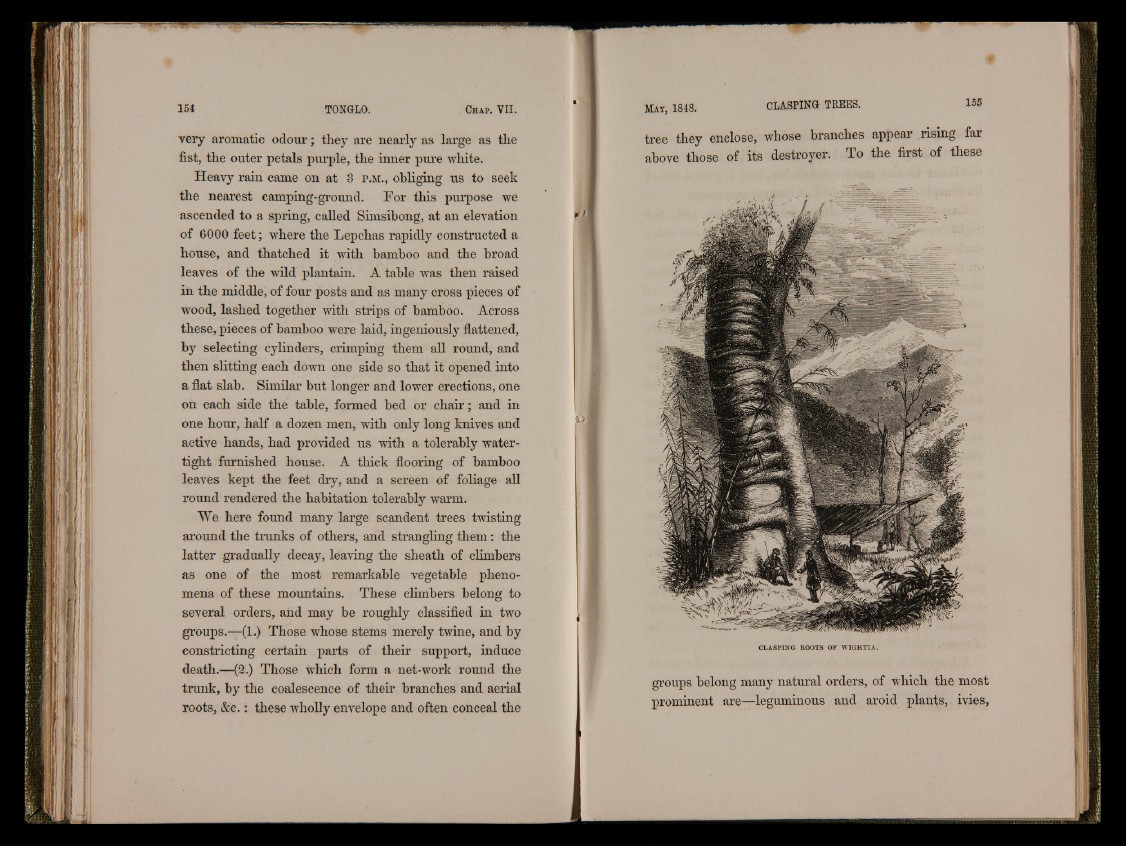
very aromatic odour; they are nearly as large as the
fist, the outer petals purple, the inner pure white.
Heavy rain came on at 8 p .m ., obliging us to seek
the nearest camping-ground. For this purpose we
ascended to a spring, called Simsibong, at an elevation
of 6000 feet; where the Lepchas rapidly constructed a
house, and thatched it with bamboo and the broad
leaves of the wild plantain. A table was then raised
in the middle, of four posts and as many cross pieces of
wood, lashed together with strips of bamboo. Across
these, pieces of bamboo were laid, ingeniously flattened,
by selecting cylinders, crimping them all round, and
then slitting each down one side so that it opened into
a fiat slab. Similar but longer and lower erections, one
on each side the table, formed bed or chair; and in
one hour, half a dozen men, with only long knives and
active hands, had provided us with a tolerably watertight
furnished house. A thick flooring of bamboo
leaves kept the feet dry, and a screen of foliage all
round rendered the habitation tolerably warm.
We here found many large scandent trees twisting
around the trunks of others, and strangling them: the
latter gradually decay, leaving the sheath of climbers
as one of the most remarkable vegetable phenomena
of these mountains. These climbers belong to
several orders, and may be roughly classified in two
groups.—(1.) Those whose stems merely twine, and by
constricting certain parts of their support, induce
death.—(2.) Those which form a net-work round the
trunk, by the coalescence of their branches and aerial
roots, &e.: these wholly envelope and often conceal the
tree they enclose, whose branches appear rising far
above those of its destroyer. To the. first of these
CLASPING ROOTS OP WIGHTIA.
groups belong many natural orders, of which the most
prominent are—leguminous and aroid plants, ivies,